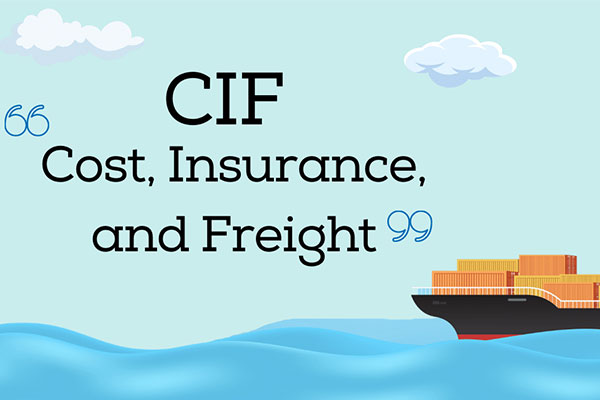In international trade,The CIFThe Cost, Insurance, and Freight clause states that the seller must bear all costs and risks until the goods are delivered to the agreed destination port, including insurance fees and shipping fees in the process of transportation of goods. However, the CIF clause provides a few detailed explanations and recommendations for shipping charges, especially additional charges arising from specific circumstances, such as check fees, which are often questionable for both parties:

Principles of Costs under CIF Clauses
In accordance with international trade practices, CIF clauses mean that the seller bears all costs of the goods from the place of departure to the port of destination until the goods pass through the shipyard. This includes transportation costs, insurance and all possible costs before arrival at the port of destination. However, CIF clauses do not generally cover shipment costs at the port of destination, import duties or transportation costs after the port of destination.
Special circumstances of transfer port inspection fees
In practical operations, the cost of checking at the transfer port is usually due to the costs incurred by the additional inspection or handling of the goods required during the transfer process.
(1) The customs inspection is:Customs authorities in some countries or regions may conduct random checks on goods passing through.
Safety or health inspections:Depending on national regulations, safety or health checks may be required for certain types of goods.
Who should pay these costs?
The agreement clearly stipulates:Ideally, both parties should have explicitly stipulated liability for unusual costs in the contract. If there are explicit stipulations in the contract, they should be executed in accordance with the contract.
Business Practices and Negotiations:If such circumstances are not specified in the contract, the seller will normally be required to bear all costs up to the port of destination under the CIF. Therefore, the cost of checking at the transfer port should theoretically be borne by the seller unless otherwise agreed by both parties.
Consultation to resolve:In practical operations, as such costs are often unpredictable, the seller and buyer can solve the problem of cost sharing through negotiation.For example, the two sides can each bear a portion of the cost to alleviate the economic pressure on each side.
Dealing with tactics.
The transparency communication:Before signing the contract, adequate communication and consultation shall be carried out on the various costs that may arise, in particular on the additional costs that may arise in the transfer port.
(2) Providing proof of documentation:In the event of additional costs, such as inspection fees, the seller should ask the goods to provide detailed cost documents and inspection reports to ensure the transparency and reasonability of the costs.
(3) The terms of the contract:Future contracts will clearly include the handling of additional charges in order to avoid similar disputes.
In conclusion, the cost of the transfer check under the CIF terms is usually borne by the seller unless otherwise agreed by both parties.Through clear contractual provisions and prior communication, commercial disputes caused by costs can be effectively avoided.


 Follow customer service WeChat
Follow customer service WeChat